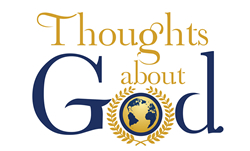On Tuesday, I led a devotional for our staff where I explained the Law of Unintended Consequences. This is akin to Murphy’s Law (What can go wrong, will). It’s not a law of nature, or man-made law. It’s a “law” of the human condition.
The Law of Unintended Consequences states that an act will often produce unforeseen results that are harmful to, sometimes the exact opposite of, what we intended. A few examples: the prohibition laws of the 1920s, by targeting bootleggers, helped consolidate large-scale organized crime (as did the “war on crime” of the 1980s, by targeting street dealers, strengthen the off-shore drug cartels); Suppressing information almost always leads to its greater dissemination (called “The Streisand Effect”); Trying to impress people usually makes them respect you less. And so on.
Genesis 25 demonstrates the Law of Unintended Consequences. Abraham marries a second wife, Keturah, after the death of his first wife, Sarah. He has many sons with Keturah. But in order to protect his son Isaac, the heir, the chosen one, the son of promise, Abraham cuts his other sons out of his inheritance and sends them away. Literally, he “sent them away from his son Isaac.” (Genesis 25:6).
That accomplishes what he intends: Isaac is protected from whatever threat they represent. Only, Abraham’s banished sons come back to haunt the people of God. Among those sons, for example, is Midian. Midian, estranged from Abraham and Isaac, fathers an entire people group, the Midianites. The Midianites, several generations later, sorely oppress the Israelites, the descendants of Abraham and Isaac. It’s the Midianites whom Gideon, with his army of 300, has to battle against several hundred years later.
Abraham gained short-term security for long-term heartache. He protected the “chosen son” from harm but unwittingly subjected the “chosen people” to harm, and on a much larger scale. So that one son would not be inconvenienced during his lifetime, many sons suffered grievously for many lifetimes.
The Law of Unintended Consequences.
Here’s a good conversation to have with yourself, with your family, with your small group: What is your “Isaac”? What is that thing that, in your effort to protect it, you might actually put it at risk? A position of power you cling to so tenaciously that you could end up destroying the very thing you’re trying to keep? A child you’re so over-protecting you might end up driving him/her into rebellion? A dream you’re so bent on fulfilling, you could end up hating it even if you accomplish it?
Part of the difficulty here is we often can’t foresee the consequences of our actions. Thank God he is the One who “works all things together for the good of those who love him and are called to his purposes.”
But some of this requires wisdom.
Maybe if Abraham had given some of his inheritance to his other children, and let Isaac fend for himself a bit, Israel would later have thrived instead of staggered.
Here’s a prayer I’m learning to pray: ‘God, where it rests with me, may I act wisely, not only for this moment, but for the sake of those who will reap the consequences of my actions and my decisions. Amen.’
You can comment on this devotional online at:
https://thoughts-about-god.com/blog/2010/06/12/mb_consequences/
